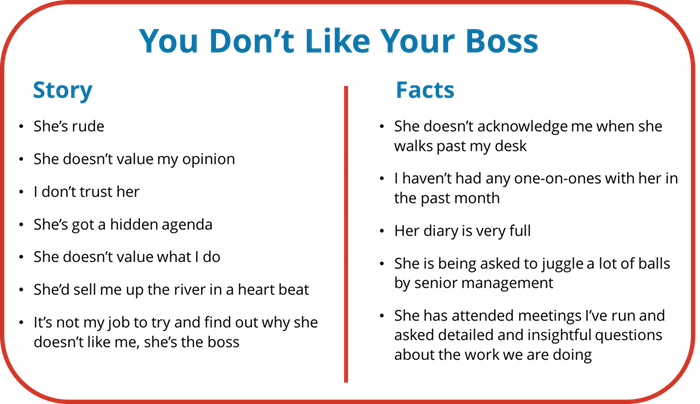Most of the time, when faced with interpersonal problems, the lack of success in solving is just a matter of “definition”. When faced with a difficult situation, our negative emotions soar and sometimes obscure everything that was really important, leading us to total paralysis in the face of difficulty. So you feel overwhelmed, drowned, you can’t find any solutions, but what do we face?
There are two (at least) different points of view in the same situation, it’s nothing else. So how many conflicts do we go through in a day? Conflicts surround us, coexist with us, are part of the human being and are also a powerful source of learning, if they are well targeted. As Freud would say: “If two individuals always agree on everything, I can assure you that one of them thinks for both of them. “
- We have to accept and know how to manage.
- But what is the solution to a conflict?Evidence is sometimes the most important: resolving a conflict is as simple and complex as “reaching an agreement.
- “Sometimes we are caught up in eternal discussions that lead to no conclusion.
- Only to be “right.
- “when.
- In most cases.
- ” reason “is totally secondary.
- Almost all the conflicts we face can be resolved by an agreement.
The agreements involve the action of both sides: must they both give up certain concepts, a certain priority, in order to achieve the common good?Any resolution has consequences, but these consequences do not invalidate the agreement, i. e. I face, business, I lose one part and I win another. The part I lose is just a consequence, so it doesn’t have the power to defeat the agreement.
But what if the conflict is internal? It sounds more complex, but it’s essentially the same structure: I have two different points of view in the same situation. So, what do I intend? The answer is the same: reach an agreement.
For this, I have to consider alternatives and make a decision, even if it has consequences that involve losses, the losses are manageable because the gains are valued together and the balance turns positive, so what is the point of self-flagellation or self-criticism? ? Without reason.
It’s about accepting and validating the consequences. Just as in external conflicts, in which we deal with the gains and consequences that we must accept, in internal conflicts the same thing happens: the consequence is inherent in resolution, that is why we must accept it and not punish ourselves, contaminated by emotion.
Resolution should be free of emotions, composure and consideration of alternatives, so the criticism of accepting the consequences is not only unnecessary, but can also be avoided.
We understand a problem as a situation that arises and, for the moment, has no solution, what can we do?
We return to the obvious and not least: we are looking for the solution. In this case, the first thing is to set a goal, where I want to achieve, what my goal is, what I want to achieve.
Once the goal is set, we implement the possible alternatives to come to the solution of our problem; Evaluate, weigh and then act. As in conflict, emotion acts in a polarized way. The resolution will sometimes be simple and sometimes it won’t. However, our objective remains valid; The road can be difficult, but we’ll be constant if we know where we want to go.
However, just as two types of conflicts arise (internal and external), we encounter two types of problems: those that have a solution and those that have no solution, we already know what to do with the former, but what about the latter?Is there anything we can do? The answer is yes and it’s called acceptance.
Can’t we solve the loss of a loved one and can’t recover something that has been lost? but we can accept reality and minimize its impact on our emotions, only then can we create new alternatives.

